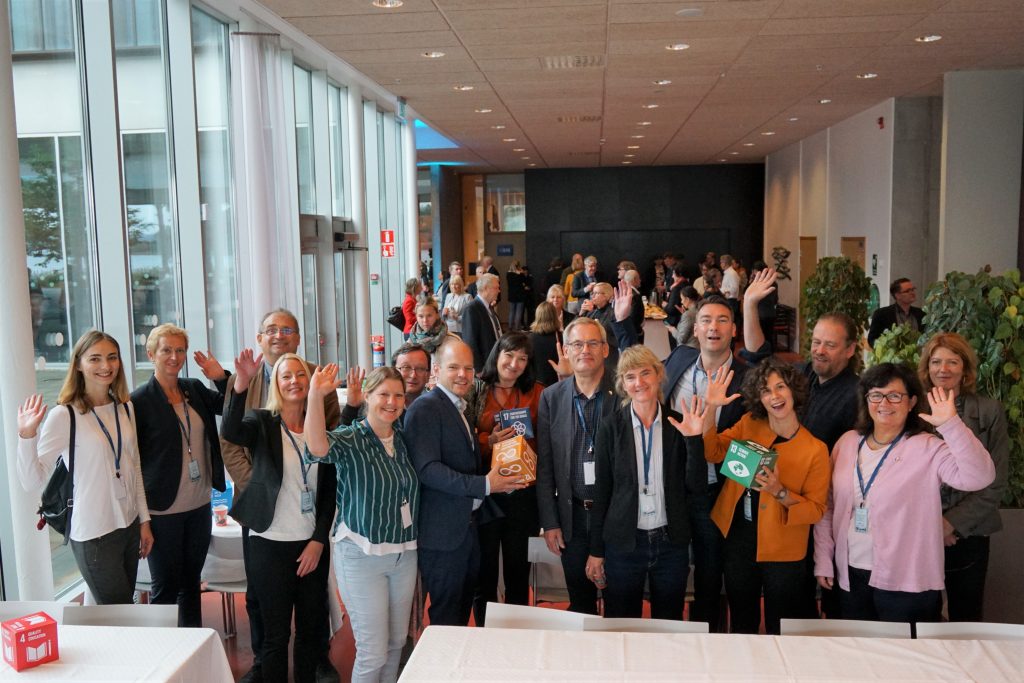On September 24th-26th the First Baltic Sea World Heritage Summit was hosted by the Municipality of Karlskrona, lead partner of the project DUNC. The Summit was organized in parallel with the Baltic Meeting Point, a forum dedicated to cities and municipalities in the South Baltic Region.
The two events represented a unique occasion to discuss international cooperation in the Baltic Sea region, business development, disaster risk management, sustainability, history and new technologies. The three days programme has been intensive, inspiring and interactive.
On the first day, we learned about the story of the High Coast World Heritage Site in Sweden and Finland, where the level of the land has been rising ever since the ice age and Tony Watson, from the Lake District in England explained us how an accurate and appealing branding concept became the motor for a sustainable business development.
Mr. Fredrik Reinfeldt, former Prime Minister of Sweden was the main speaker of the second day, where a joint programme for the two conferences has been hosted at the Blekinge Institute of Technology. Yngve Berqvist, founder of the Icehotel showed us how he managed to create a world famous destination in a place where coldness and darkness dominate during several months of the year. Completely different images of lights and flames surrounding the Notre Dame Cathedral captured our attention during the presentation of Mrs. Burcu Özdemir, UNESCO specialist, who taught us the importance of preparedness and risk management in case an adverse event occurs.
With the presentation of Åsa Trulsson we have traveled back in time and learnt about how Vikings and their neighbors organized their trade networks. Finally, after a team building exercise with Hyper Island, we could play Minecraft and discover how modern technologies can be used to learn about our heritage while playing.
Last but not least, sustainability has been the protagonist on the third and last day of the conference. Mrs. Annelie Börjesson, president of the United Nations Association of Sweden, gave a lecture on the importance of the Sustainable Development Goals to help building a resilient, sustainable and peaceful Baltic Sea region. Two preferred speaker of the non- profit foundation Green Destinations showed us how to become a sustainable destination.
Finally the participants discussed future cooperation of World Heritage Sites around the Baltic Sea, and the proposal of the Municipality of Karlskrona to create a Baltic Sea World Heritage Centre to support them all. The idea was received with positive reactions by the participants, who gave input on the competencies and business of such a centre.

